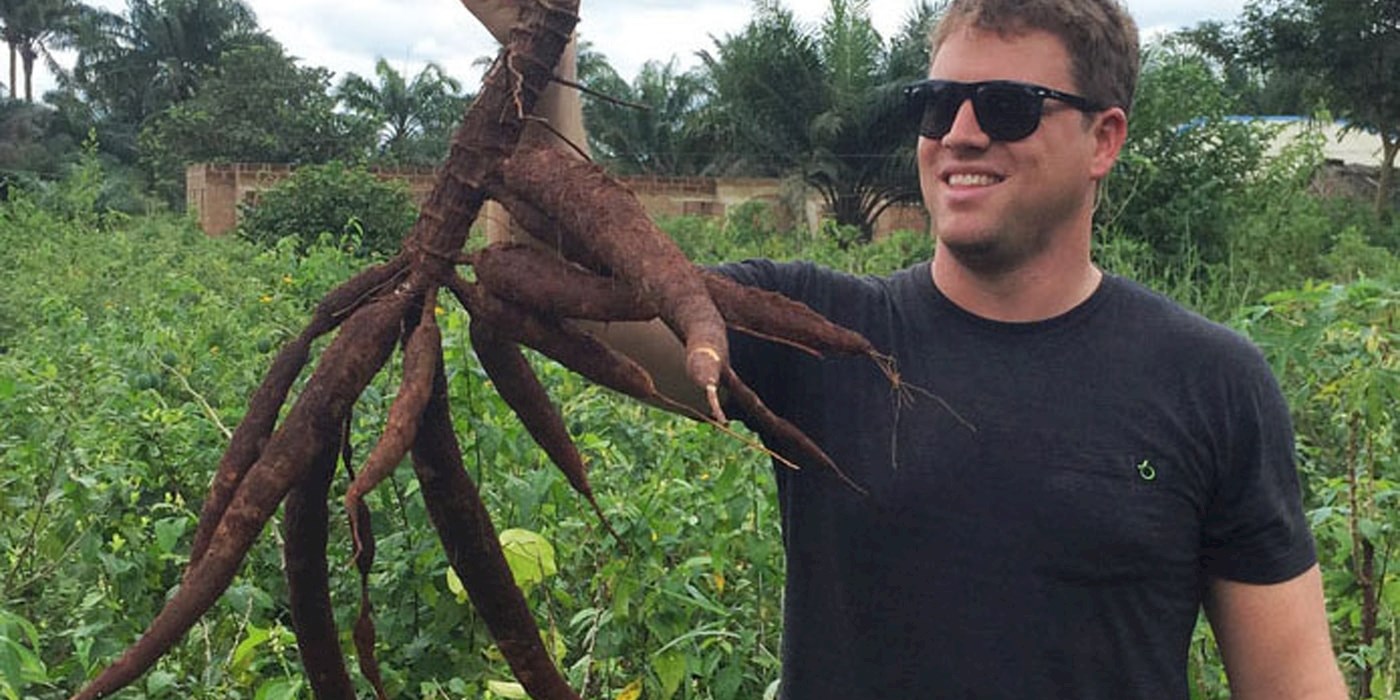By Mark Roth
Imagine buying a bunch of bananas and have each one ripen on a different day. That’s just one of the marvels made possible by food preservation technology developed by Carnegie Mellon University graduate James Rogers.
His startup company, Apeel Sciences, creates a miniscule edible barrier, trademarked as “Edipeel” and “Invisipeel,” to shield fruits and vegetables from harmful environmental effects. The barrier protects them while they are growing and extends their shelf life by up to five times.
Apeel’s products are FDA GRAS approved and are made entirely from the food we already eat. Edipeel stretches the shelf life of avocadoes from 30 to 45 days and works on many other produce types.
The FDA-approved barriers have been tested with several organic farmers in California, and Rogers said “the company is now negotiating service agreements with several of the world’s largest produce exporters,” and has just begun sales of its products.
The firm has received $40 million in startup funding, putting it in the top tier nationally of startup investments, according to figures from the National Venture Capital Association.
The roots of Apeel can be traced back to Rogers time at CMU.
“I appreciate every day that I made it through Carnegie Mellon,” said Rogers, who earned his dual degree in materials science and biomedical engineering in 2007 while co-captaining CMU’s undefeated 2006 football team.
“It was a grind, but I learned all the core concepts that got us to where we are today,” said the standout linebacker for the Tartans.
Being a part of CMU’s football team was a key factor for Rogers.
“Football created the structure I needed to be successful, because it was wake up, go to classes, go to football practice, go do homework and rinse and repeat. Even though it was an intense time commitment, the structure it provided was incredibly valuable,” he said.
The specific idea for the company Rogers founded in 2012 came to him while studying polymer solar panels for his Ph.D. in materials science at the University of California at Santa Barbara. As part of that work, he would regularly drive lab samples from Santa Barbara to Lawrence Berkeley Laboratory, more than 300 miles north. One of those drives came after hearing a presentation on world hunger.
“I am looking out the window at these lush green fields, and I thought how is it we have these magical seeds that propagate and yet we have people on this planet going hungry? I found that we weren’t having trouble producing the food we needed, we were having trouble storing it after it was produced,” he said.
The enemies of fresh fruit and vegetables are loss of water, oxidation and attacks by bacteria and fungi, which the food industry combats with everything from refrigeration during shipment to waxing the surface of apples.
Longtime CMU football coach Rich Lackner is not surprised by his success.
“I asked one of our players after his senior year, ‘Who is the absolutely brightest kid on the team?’ and he said ‘Without a doubt, James,’” Lackner recalled.
# # #
Photo caption (top): Rogers holds up some well-preserved cassava on one of his trips to Nigeria. He first tested his product in Africa, where lack of refrigeration is a major problem for farmers.




